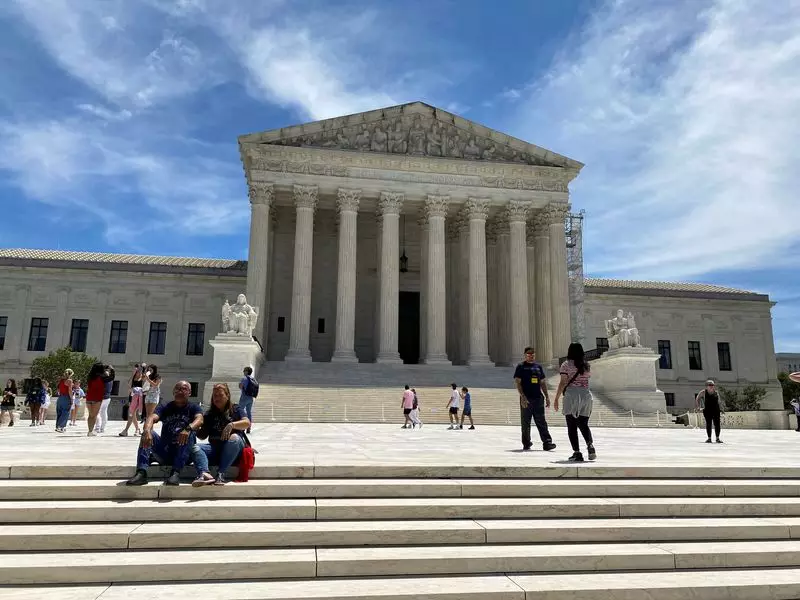The recent ruling by the U.S. Supreme Court on the taxation of Americans who have investments in foreign corporations has sparked a debate on the interpretation of the Constitution’s 16th Amendment. In a 7-2 decision, the justices upheld a lower court’s ruling against a retired couple from Washington who challenged the tax on foreign company earnings. This decision comes at a time when Democratic lawmakers are considering imposing a wealth tax on the super-rich, adding another layer of complexity to the tax system in the U.S.
The central issue in this case was whether the tax on unrealized gains is permissible under the Constitution. The plaintiffs argued that “income” should only refer to gains that have been realized through payment to the taxpayer, rather than simply an increase in the value of property. This interpretation could have far-reaching implications for other tax code provisions related to various types of business entities, including partnerships and S-corporations.
The Justice Department warned that invalidating the mandatory repatriation tax could cost the U.S. government billions of dollars over the next decade. This ruling could also impact other tax provisions and legislative proposals, such as Senator Elizabeth Warren’s proposal for a wealth tax on super-rich Americans. The financial ramifications of this decision highlight the complexities of the U.S. tax system and the challenges of balancing revenue generation with economic growth.
The case also raised ethical concerns regarding the conduct of the justices, particularly in relation to undisclosed conflicts of interest and interactions with outside parties. Democratic senators called for Justice Alito’s recusal due to his ties to one of the lawyers representing the plaintiffs. The senators argued that these relationships could compromise the justice’s ability to impartially judge the case, highlighting the need for greater transparency and accountability in the judicial system.
The recent Supreme Court ruling on taxation reflects the ongoing complexities of the U.S. tax system and the challenges of interpreting constitutional principles in a rapidly changing economic landscape. The decision has far-reaching implications for tax policy and legislative proposals, underscoring the need for a comprehensive review of the tax code to ensure fairness and equity in the taxation of individuals and businesses.


Leave a Reply